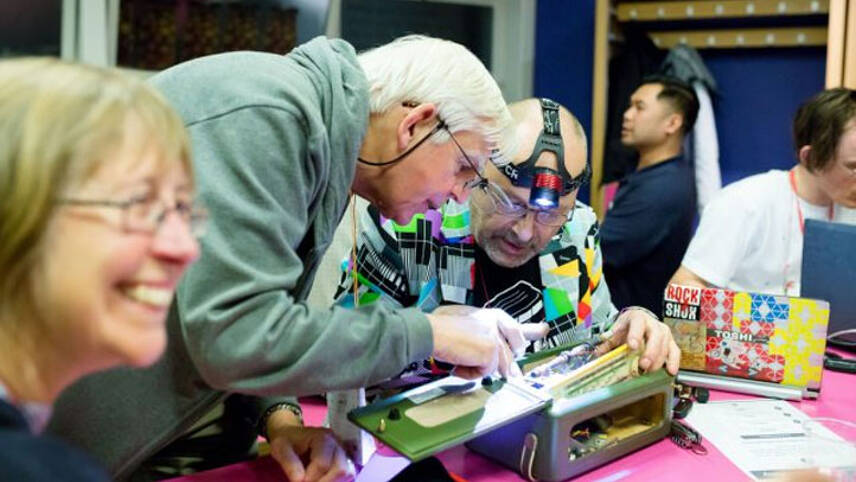Register for free and continue reading
Join our growing army of changemakers and get unlimited access to our premium content

Image: The Restart Project
The telecoms giant and the environmental charity have this week launched the second round of their ‘Time After Time Fund’, which supports community-led projects across the UK that enable the repair and reuse of electronics and electricals.
This can prevent waste, save people money, and provide digital access to those unable to afford their own new devices.
Under the fund, a total of £500,000 in grants is being made available. Each project can bid for a share of between £25,000 and £100,000 until applications close on Friday 20 October.
Ten projects received funding last year, spanning all parts of the UK. The Restart Project, which operates repair café’s across the nation, received funding to launch events at universities and encourage students to bring items that could otherwise end up as e-waste.
Similarly, a series of workshops on repair with schools across Bristol was supported through Bristol Sustainable Hive CIC.
Several other projects had a focus on upskilling young people – either with digital skills or in device repair. These included the Warren Youth Project in Hull, Youth and Community Connexions in North London, and Foothold Cymru’s Bright Spark scheme in Llanelli.
Hubbub co-founder Gavin Ellis said: “We are particularly delighted that a number of the winning projects aim to engage with people aged 16 to 24 – who are not only heavy users of electrical items – but are key to helping tackle this issue in the future.”
To encourage even more applications this year, Virgin Media O2 and Hubbub have enlisted the help of TV presenter George Clarke, famous for his ‘Amazing Spaces’ and ‘Restoration Man’ series.
Clarke said: “It’s a fantastic initiative both tackling the nation’s growing e-waste problem and helping those in need, so I’m really looking forward to seeing the brilliant and inspiring ideas the applicants come up with.”
Virgin Media O2 is notably aiming to support people across the UK to complete 10 million actions to combat the nation’s e-waste problem by 2025. It is also aiming to provide one million digitally excluded people with the devices and/or connectivity services they need to access modern telecoms and internet.
The UN believes that e-waste is the world’s fastest-growing domestic waste stream.
Rapid growth in the market for reused, recycled and repurposed technology offers some hope that this trend can be turned around. Used smartphone sales increased by 20% each year in Europe between 2016 and 2020. In 2023, with 93% of Europeans citing the cost-of-living crisis as their biggest personal concern, buying a new technology will simply not be an option for many.
Related feature: Can 2023 be a tipping point for the global second-hand tech market’s growth?


Please login or Register to leave a comment.